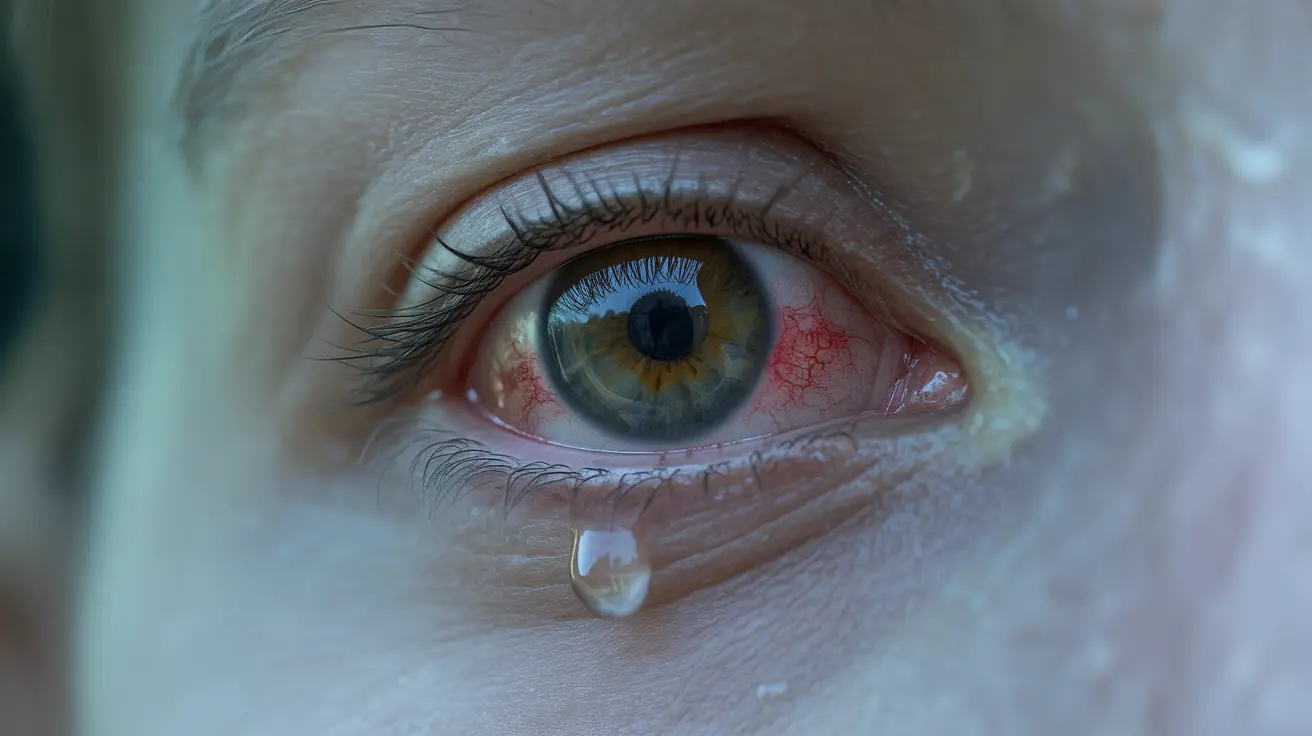That uncomfortable, gritty sensation in your eyes can be both irritating and concerning. Whether it feels like sand, dirt, or small particles scratching your eyes, this common problem can affect anyone and has various causes. Understanding why it happens and knowing effective relief methods can help you address this uncomfortable sensation properly.
Common Causes of Gritty Eyes
Several factors can contribute to the sandy, gritty feeling in your eyes:
Dry Eye Syndrome
This common condition occurs when your eyes don't produce enough tears or when tears evaporate too quickly. Environmental factors, aging, and certain medications can contribute to dry eye syndrome, leading to that characteristic gritty sensation.
Environmental Irritants
Exposure to dust, pollen, smoke, or air pollution can cause particles to accumulate in your eyes, creating a sandy feeling. Extended screen time can also reduce blinking frequency, exacerbating the problem.
Contact Lens Issues
Improper contact lens care, wearing lenses for too long, or using ill-fitting contacts can cause eye irritation and a gritty sensation. Protein deposits on contact lenses may also contribute to this discomfort.
Effective Home Remedies
Several home-based solutions can help alleviate the sand feeling in your eyes:
- Apply artificial tears or lubricating eye drops
- Use a warm compress for 5-10 minutes
- Practice good eyelid hygiene
- Take regular breaks from screen time
- Stay hydrated by drinking plenty of water
Medical Treatments and Solutions
When home remedies aren't enough, medical interventions may be necessary:
Prescription Medications
Your doctor might prescribe specialized eye drops or ointments to address underlying conditions causing the gritty sensation. These may include anti-inflammatory medications or prescription-strength artificial tears.
Professional Treatments
More severe cases might require professional treatments such as:
- Punctal plugs to prevent tear drainage
- LipiFlow treatment for meibomian gland dysfunction
- Intense Pulsed Light (IPL) therapy
- BlephEx treatment for eyelid cleaning
Prevention Strategies
Implement these preventive measures to reduce the risk of developing gritty eyes:
- Use proper eye protection in dusty environments
- Maintain good contact lens hygiene
- Keep air humidity at optimal levels
- Take regular breaks during computer work
- Protect eyes from wind and sun exposure
Frequently Asked Questions
What are the most common causes of the sand or gritty feeling in my eyes?
The most common causes include dry eye syndrome, environmental irritants, allergies, contact lens wear, and underlying eye conditions. Digital eye strain and poor tear production can also contribute to this sensation.
How can I get rid of the sand feeling in my eyes at home?
Use artificial tears regularly, apply warm compresses, practice good eye hygiene, take breaks from screen time, and ensure proper hydration. Avoiding rubbing your eyes and maintaining a clean environment can also help.
What medical treatments help relieve gritty eyes caused by dry eye syndrome or allergies?
Medical treatments may include prescription eye drops, anti-inflammatory medications, punctal plugs, and specialized treatments like LipiFlow or IPL therapy. Your eye care provider can recommend the most appropriate treatment based on the underlying cause.
Can wearing contact lenses cause a gritty sensation in my eyes, and how can I prevent it?
Yes, contact lenses can cause a gritty sensation if not properly maintained or worn too long. Prevent this by following proper lens care guidelines, replacing lenses as scheduled, and giving your eyes regular breaks from contact lens wear.
What lifestyle changes or preventive measures can reduce the risk of having gritty, sand-like feelings in my eyes?
Key preventive measures include maintaining good eye hygiene, using proper eye protection, staying hydrated, managing screen time with regular breaks, controlling environmental factors like humidity, and addressing any underlying health conditions that might affect eye health.




